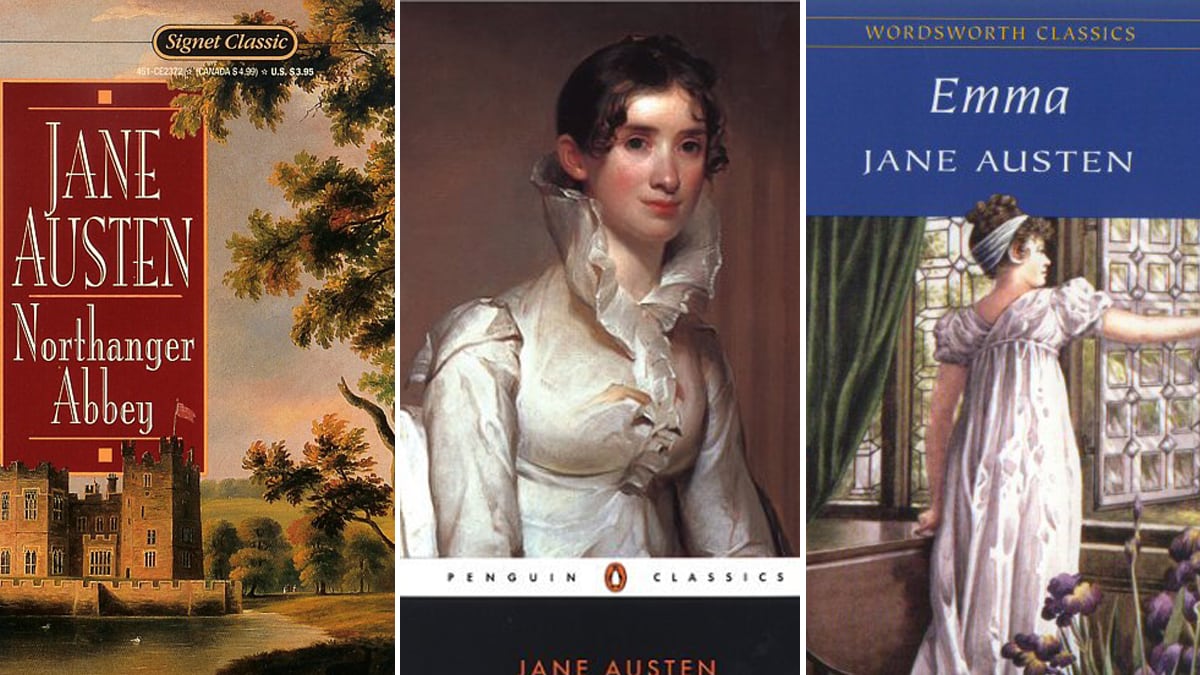Jane Austen, it seems, is everywhere. Nobel prizewinning novelist V.S. Naipaul has slammed her for the sin of sentimentality. A film adaptation of bestselling mash-up Pride and Prejudice and Zombies is in the works. And if that parody weren’t enough, a pornographic send-up of the same Austen novel (Pride and Prejudice: Hidden Lusts) is slated for July. All of which raises the question of why the writing of this long-dead novelist continues to provoke such a wide range of critical and creative reactions. The answer has in large part to do with the enduring appeal of her complex, tough-minded view of love, life, and human nature.
Surely some Austen disputation is driven by the technological imperative to express one’s opinions; the great maw of the Internet must be fed with “news,” and declarations of one’s personal preferences (“likes”) are taken, these days, for both information and conversation. Then there is the suspicion among those who harbor the itch to say something shocking that hordes of Austen cultists are out there poised at their keyboards, prepared to defend their darling at a moment’s provocation. The well-washed legions of those who idolize Austen can be counted on to be horrified—preferably publicly—by both impious naysayers and the ever-more-inventive dirtying-up of the decorous romantic stories.
In Naipaul’s case, the motive appears to have been pretend-impish daring, the childish boast, more and less explicit, of having the nerve (the balls) to criticize Saint Jane. If Naipaul’s pronouncement that no woman writer can be considered his equal is merely the sad senescent squawk of a geezer, his grandiose comparison of himself to Austen is a silly show of faux-boyish daring. Austen, schmaltzy? Never in her short life did she write anything nearly as sentimental as Naipaul’s great youthful novel, A House for Mr. Biswas. As for his excoriation of “feminine tosh” (the marvelously delicate phrase stinks of gentility!), it’s a childish effort to shock, much like the forthcoming pornographic Pride and Prejudice.

The controversies that seem continuously to swirl around Austen’s work may be rooted in a failure to appreciate her humorous and critical take on her society and its meat-and-marriage markets. Readers who excoriate (or, indeed, adore) her too narrowly imagine Jane as first-and-foremost a woman, a writer of romances, and/or a moralizing goody-two-shoes. She was in fact much more than that. Here she is, for example, assessing the character of Mr. John Dashwood, the half-brother of the nubile sister heroines of Sense and Sensibility:
He was not an ill-disposed young man, unless to be rather cold hearted, and rather selfish, is to be ill-disposed: but he was, in general, well respected; for he conducted himself with propriety in the discharge of his ordinary duties. Had he married a more amiable woman, he might have been made still more respectable than he was:—he might even have been made amiable himself; for he was very young when he married, and very fond of his wife. But Mrs. John Dashwood was a strong caricature of himself;—more narrow-minded and selfish.
These are hardly the cadences or the sentiments of a romance writer who thinks that love and marriage will solve everything. Austen’s subject, as she herself said, was human nature, and what she says about how love and marriage can inflect and alter a person for the worse is often, as in this passage, surprising. Her novels are not, as some insist on thinking, the helplessly romantic effusions of a repressed spinster. French writers, coyly and salaciously, used to call erotic literature books meant to be read “with one hand”; contemporary non-readers and misreaders of Jane Austen wrongly imagine her as the respectable opposite of a pornographer, writing about sex and love with both her hands tied. She was in fact a satirist of society, and of its notions of respectability.
How presumptuous and ridiculous to “liberate” an uptight Austen from her hang-ups and deliver her into a cooler, looser, straighter-talking 21st century. Her view of human nature is as hard-eyed today as it was in her time. Using Austen as a prim and proper foil to radical, modern, sexualized “truths” is by now a tired, old trick—as is attempting to separate the men from the women, the pure from the impure, the divine from the diabolical, the high from the low, the sentimental from the clear-headed, and especially, the naughty (or is it nasty?) from the nice. The distinctions found within Jane Austen’s work are far truer and finer than that.






